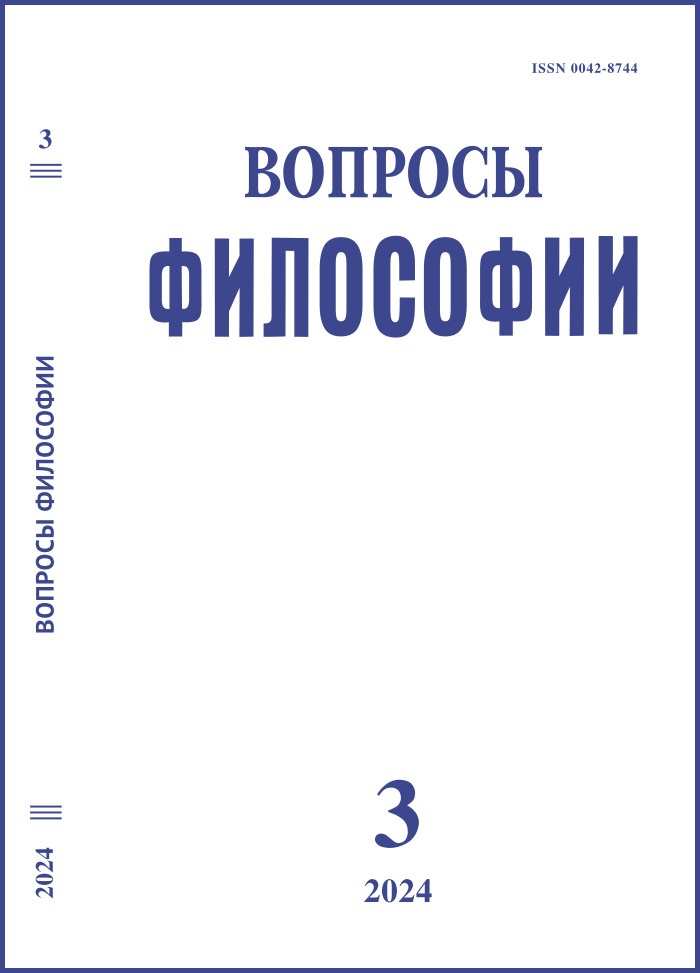On the Dialectic of the Real and the Ideal: Evald Ilyenkov and the Russian Epistemological Tradition
DOI:
https://doi.org/10.21146/0042-8744-2024-3-52-61Keywords:
Evald Ilyenkov, real, ideal (Ideelle), matter, form, dialectics, social.Abstract
The article is devoted to rethinking the place and role of Evald Vasilyevich Ilyenkov in the Russian epistemological tradition. His interpretation of the dialectic of the real and the ideal (in German: Ideelle) turns out to be strikingly consonant with the intellectual searches of Russian philosophers of the first half of the twentieth century (G.G. Shpet, P.A. Florensky, M.M. Bakhtin, A.F. Losev, etc.), who turned (each in their own way) to understanding the phenomena of the social world. This consonance for a long time remained outside the scope of research attention, and meanwhile, immersing the concept of Ilyenkov’s “ideal” in the context of “positive philosophy” on Russian soil becomes relevant today for identifying continuity in the development of Russian philosophy as an integral cultural and historical phenomenon. Despite the apparent paradox, Ilyenkov, postulating the “ideal” as “really” existing, turns out to be much closer to the Russian philosophical tradition than the certain “socio-ideological” conjuncture of his time allowed to imagine. Exploring the “logic” of Marx’s “Capital”, Ilyenkov discovers a special layer of reality that exists exclusively in the social world and requires understanding. He became the first in Soviet philosophy who not only understood the concept of the “ideal” Marx, but also developed it, i.e. revealed the existence of the ideal in the sense of Ideelle not only in the external body of culture, which is the merit of K. Marx, but also in the inner spiritual world of man. In conclusion, the need to specify the concept of E.V. Ilyenkov is noted by comparing it with the ideas of Russian philosophers, in particular with the reasoning of M.M. Bakhtin about the relationship between architectonic and compositional forms, content and matter (material).

